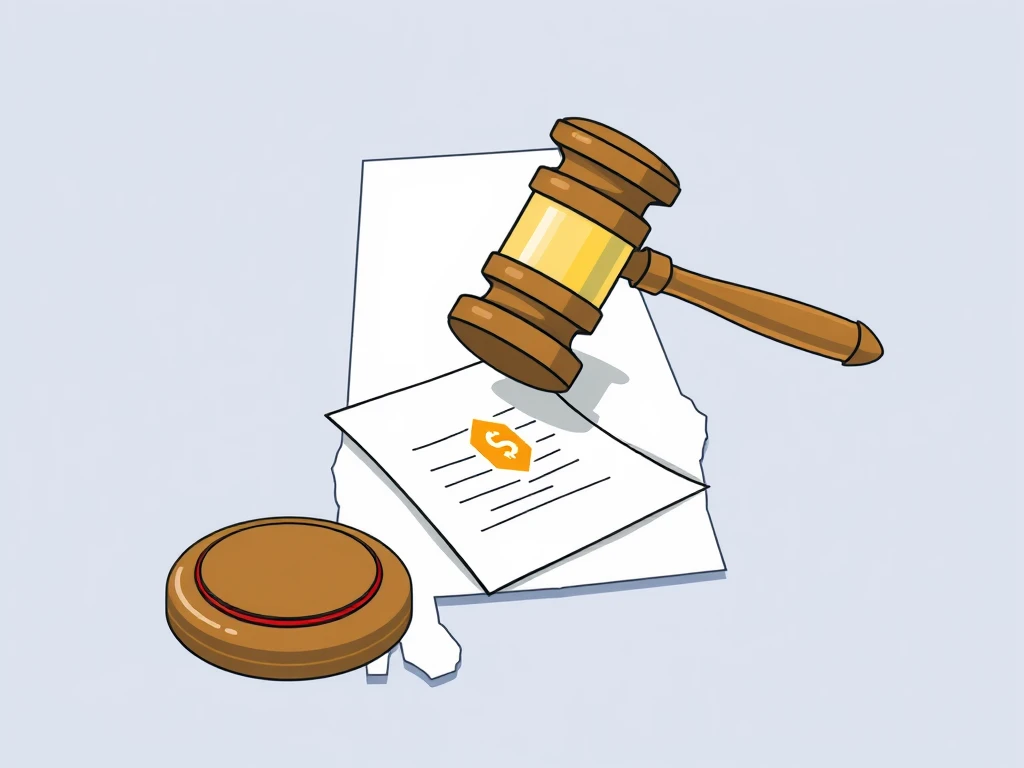Positive News: Alabama Drops Coinbase Staking Lawsuit Amidst Regulatory Clarity Efforts

Major developments are unfolding in the regulatory landscape for cryptocurrency exchanges in the United States. In a significant move watched closely by the industry, Alabama has dropped its lawsuit against Coinbase regarding the company’s staking services. This decision reflects a broader trend as regulators consider the evolving federal approach to digital assets.
Why Alabama Dropped the Coinbase Staking Lawsuit
The Alabama Securities Commission filed a legal action against Coinbase in June 2023, alleging that the exchange’s staking programs constituted unregistered securities offerings. However, the state regulator recently dismissed this lawsuit. The primary reason cited for dropping the *Alabama lawsuit* was the ongoing work between the U.S. Securities and Exchange Commission (SEC) and the crypto industry aimed at developing clear regulatory guidelines.
According to a legal filing shared by Coinbase’s chief legal officer, Paul Grewal, the Commission stated:
- The SEC has formed a task force to provide guidance on regulating cryptocurrency products and services.
- Policymakers require time to consider regulatory constructs in light of these developments.
This indicates a willingness by some state regulators to pause independent actions while federal *crypto regulation* efforts progress.
Context: State Lawsuits Against Coinbase
Alabama was one of ten states that filed litigation against Coinbase in 2023 concerning its *Coinbase staking* services. These *state lawsuits* collectively represented a significant challenge for the exchange’s domestic operations.
Here’s a quick look at the status of these lawsuits:
- States that have dropped their lawsuits: Vermont, South Carolina, Kentucky, Alabama, and one other state (as half of the 10 have dropped).
- States still pursuing litigation: Five states continue their legal actions.
The decision by half of the initial states to drop their cases signals a potential shift in the state-level regulatory approach, possibly influenced by the anticipation of more defined federal rules.
Coinbase’s Perspective on the Legal Landscape
Coinbase has actively defended its staking services and operations against these regulatory challenges. The dismissal of the *Alabama lawsuit* is seen as a positive step by the company.
Paul Grewal acknowledged the progress but also highlighted the remaining challenges. He noted that five states are still pursuing litigation, with four of them having banned staking on the Coinbase platform. Grewal emphasized the need for continued work to achieve greater regulatory clarity and consistency across jurisdictions.
What This Means for Crypto Regulation
The dropping of the *Alabama lawsuit* and others against Coinbase reflects a complex and evolving regulatory environment in the U.S. While the SEC’s stance on certain crypto activities remains a subject of debate and ongoing legal battles, the formation of task forces and the stated need for policymakers to consider new constructs suggest movement towards potential future clarity.
The outcome of these *state lawsuits* and the direction of federal *crypto regulation* will significantly impact how exchanges like Coinbase can offer services such as staking to U.S. customers. The legal actions and their resolutions are critical indicators for the industry’s future within the country.
Conclusion: A Step Towards Clarity?
The decision by Alabama to drop its lawsuit against Coinbase is a notable development in the ongoing regulatory saga surrounding cryptocurrency staking services. By citing the need for policymakers to consider regulatory constructs and the SEC’s efforts, the state indicates a willingness to allow federal processes to potentially shape future rules. While challenges remain, particularly with the states still pursuing legal action, this move, coupled with other states dropping their suits, represents a positive step towards a more defined and potentially less fragmented regulatory environment for the crypto industry in the United States. The path to comprehensive *crypto regulation* is long, but actions like these provide important insights into the journey.









